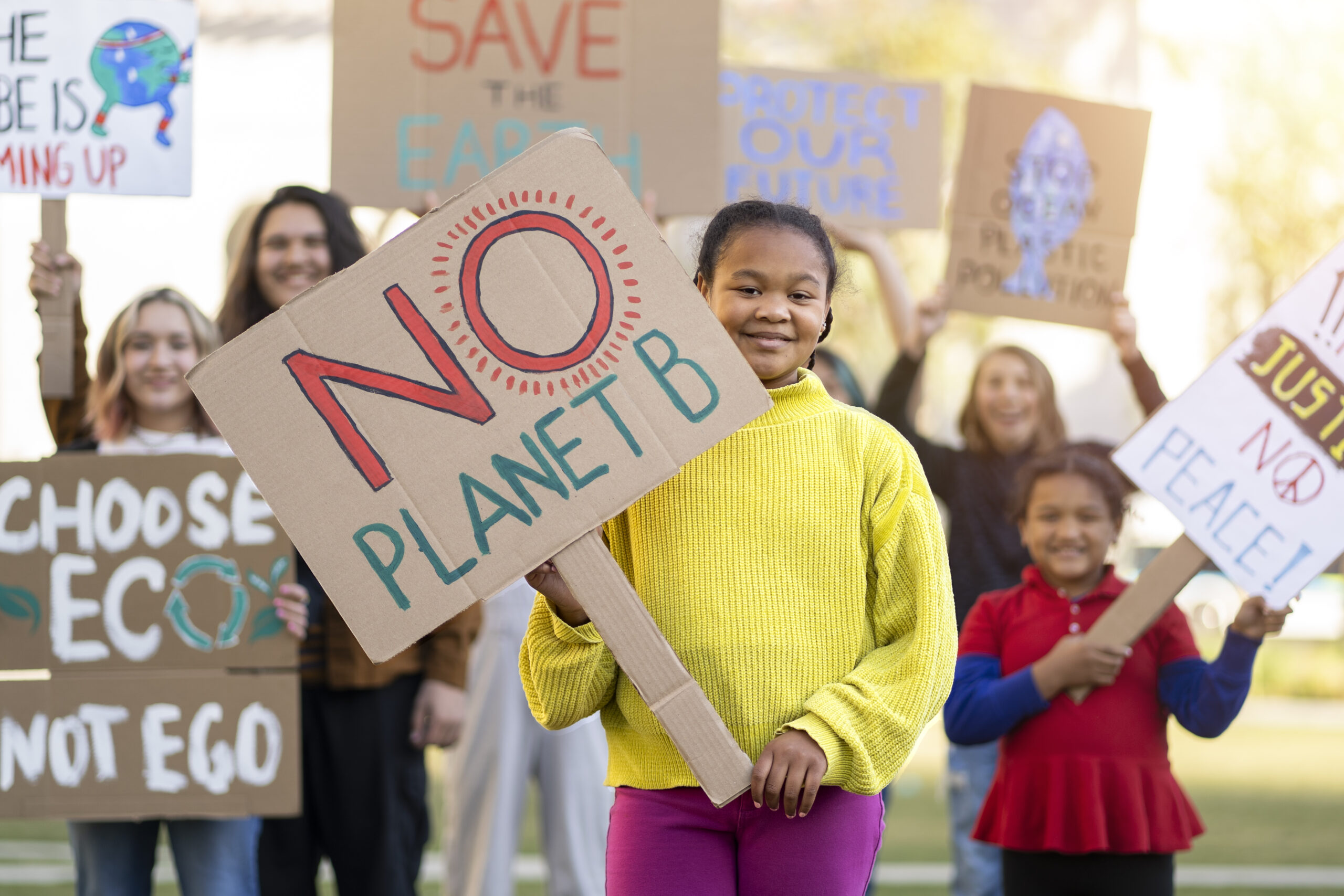
Designed by Freepik
In a world where environmental degradation has become an insidious norm, we awaken daily to a planet in peril: forests consumed by infernos, oceans suffocating under the weight of human waste, and communities uprooted by conflict—yet still, we carry on, often more consumed by our daily routine than the devastation unfolding around us.
Africa, a continent where 40% of the population has yet to see their fifteenth birthday, contributes a mere 4% to global emissions (Statista, 2022). Rising temperatures are not just figures in a report; they are the rising costs of food, the conflicts sparked over water, and the families forced to migrate as their lands wither. As resources dwindle, so too does the flame of hope flicker precariously.
Generation Alpha has never known a world without climate change. By the turn of the century, these children—aged 10 or younger in 2020—will face nearly four times more extreme weather events at 1.5°C of warming, and five times more at 3°C. Unlike older generations, they will inherit a planet where storms hit harder, droughts last longer, and homes crumble under nature’s fury. (IPCC, 2021)
Yet, paradoxically, hope still burns bright in the eyes of our youth. A survey from World Children’s Day revealed a generation more aware, more connected, and more determined than ever. (UNICEF, 2021). It is within this crucible of awareness and determination that Africa Kesho emerges,. driven by the belief that children are the leaders of tomorrow but their job starts today.
Africa Kesho: Empowering Young Voices
Kesho,” Swahili for “tomorrow,” encapsulates the aspirations of Africa’s youth for a just and habitable future. The project breaks down the latest climate change information and encourages intergenerational climate action in a series of easily accessible videos. Each episode poses probing questions relevant to children’s lived experiences, such as: “Can Kenya’s new anticipatory action roadmap mitigate the impact of the next major flood?”
A Personal Story of Hope
Africa Kesho represents more than just a project; it is an intergenerational collaboration, co-led by Victoria Wachira, a millennial mother and impassioned climate advocate, and her 11-year-old son, Aaron Taji. For six years, Victoria has been at the center of digital movements, galvanizing mass action through campaigns like Save Murchison Falls, Save Nairobi National Park, and Race To Resilience. Her work with the Global Resilience Partnership and the Global Network of Civil Society Organisations for Disaster Reduction has amplified marginalized voices, championed community-driven solutions, and equipped civil society with critical resources like USAID’s “Making Displacement Safer Cookbook” (GNDR, 2021).
The Call to Action: Listen, Learn, Act
At Africa Kesho, children are teaching us that climate resilience is not built in conference rooms, but in homes, in classrooms, and in communities.
When the kids ask what you did once you knew, how will you respond?
If you are a parent, teacher, or community leader who recognizes the urgency of our climate crisis, there’s a place for you in this movement. If you want to offer your expertise in education, media production, or youth engagement, or if your organization aligns with our mission, please contact Africa Kesho to explore partnership opportunities.
References:
Statista. (2024). Africa’s share in global carbon dioxide (CO2) emissions from 2000 to 2021. Retrieved from https://www.statista.com/statistics/1287508/africa-share-in-global-co2-emissions/
Intergovernmental Panel on Climate Change. (2021). Sixth assessment report: Frequently asked questions – Key FAQ 3. Retrieved from https://www.ipcc.ch/report/ar6/wg2/about/frequently-asked-questions/keyfaq3/
UNICEF. (2021). World children’s day survey. Retrieved from https://www.unicef.org/innocenti/media/566/file/UNICEF-Global-Insight-Gallup-Changing-Childhood-Survey-Report-English-2021.pdf
Global Network of Civil Society Organisations for Disaster Reduction. (2021). Making displacement safer: A cookbook for safer displacement. Retrieved from https://www.gndr.org/making-displacement-safer-cookbook/
